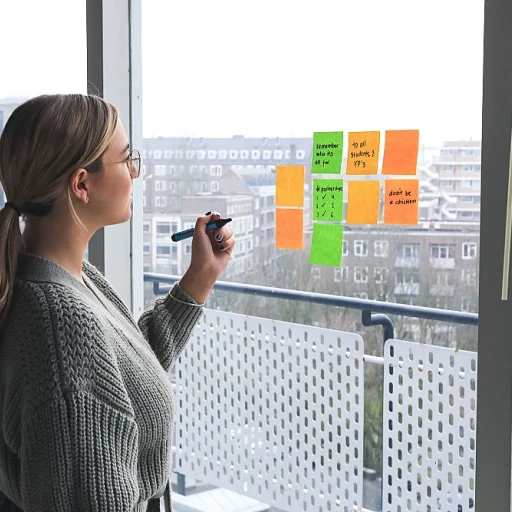
Understanding the Role
Exploring the Purpose of the Position
As an internal candidate, understanding the intricacies of the role you are interviewing for is vital. It involves asking comprehensive interview questions to gauge the responsibilities, expectations, and day-to-day activities associated with the position. By clearly grasping what the job entails, you significantly boost your chances of fitting into your potential new role seamlessly.
Here are some areas to focus on during the internal interview process to deepen your understanding:
- Role Evolution: Inquire about how the roles have evolved over time, and if there have been adjustments to keep in line with company goals or industry trends. This question also unveils potential future changes and the adaptability required from the candidate.
- Expectations: Discuss what the hiring manager and team members expect from the candidate taking on this role. This understanding will help you align your current skills and experiences with those expectations, showcasing how you can meet or exceed them.
- Necessary Skills and Experience: Clarify what essential skills and experiences are critical for the position. Determine if there are areas you may need to develop further or skills that transfer directly from your current role.
- Aligning Company and Personal Goals: Investigate how the role aligns with the company’s long-term objectives. This understanding will help evaluate how the position may play a part in your personal career trajectory and internal mobility.
These insights not only aid in providing a sample answer during the interview but also enhance your ability to make well-informed decisions about whether this internal move aligns with your aspirations and career goals.
Team Dynamics and Culture
Assessing the Company's People Environment
When preparing for an internal interview, understanding the team dynamics and company culture is crucial. This awareness will help you determine if you fit within the team and if the role aligns with your professional goals. Candidates often overlook these aspects, focusing solely on the role's responsibilities, but gaining insights into the team dynamics can provide significant advantages. Consider asking the following questions to learn more about the team's environment:- How would you describe the team's work style and communication approach?
- Can you share examples of successful projects within this team?
- What do team members value most about working here?
- How does the team handle conflicts or differences in opinion?
Performance Metrics
Setting Clear Performance Expectations
When stepping into a new or an enhanced role within the same company, it's critical to understand how success will be evaluated. Asking the right interview questions during your internal interview will help you grasp the performance metrics that define the position. Understanding the specific goals associated with the role can give internal candidates an edge. Start by inquiring about the key performance indicators (KPIs) that will measure your effectiveness. Most hiring managers appreciate candidates who show awareness of both short-term and long-term objectives. Here's a sample question you might consider: "What are the most important outcomes for this position within the first six months and year?" It's also beneficial to discuss the performance management process. This will give you insight into how the company, and specifically the team, tracks progress. Knowing whether reviews are held quarterly, bi-annually, or annually, and what forms of feedback are typically provided can prepare you in advance. Exploring how your current skills and experiences align with these expectations is another vital aspect. Share an example from your current role, highlighting a project that required similar skills, and ask how those skills will translate to achieving success in the new position. This isn't just about proving your capability; it's about demonstrating your understanding of the job requirements and showing foresight in developing necessary competencies. Moreover, consider the potential challenges tied to these metrics. Hiring managers may reveal valuable information about recent changes in company priorities or issues within the team dynamics that could influence performance. Addressing these elements during your internal interviews can lay the groundwork for future advancement within the company or help clarify why you didn't get an interview for that internal opportunity if things don't align perfectly. Delve deeper into understanding performance evaluations in internal interviews.Opportunities for Growth
Growth Prospects Within the Company
When preparing for an internal interview, it's crucial to consider your growth opportunities within the company. Asking the right interview questions about future prospects not only demonstrates your commitment to the company but also showcases your desire for personal and professional development. Here are some questions that candidates can ask to better understand the opportunities available:
- What are the potential career paths for someone in this role? This question helps you gauge how the company envisions long-term growth for this position and whether they prioritize internal mobility.
- Does the company offer any training or skill development programs relevant to this role? By asking this, you show your eagerness to hone your skills and align with the company's objectives.
- Can you share an example of a past employee who successfully advanced from this position? Hearing success stories of team members' growth within the organization assures you of the company's commitment to fostering talent.
- How does the company support employees in achieving their career goals? This question provides insights into the company's support system and resources available for employee advancement.
- What role does this position play in the company's future strategic plans? Understanding the importance of the position in the broader company goals will give you a clear picture of how your contributions will be valued.
A well-considered answer to these questions will help not only demonstrate your potential but also prepare you for future roles, if given the opportunity. As candidates, ensure that you express genuine interest in the company's growth policies, as it will reflect on your aspirations to contribute positively to both personal and company success.
Challenges and Opportunities
Addressing Potential Obstacles and Leveraging Opportunities
When contemplating an internal interview, it’s crucial to assess not only the benefits but also the obstacles inherent to a role transition. As you prepare to delve into this segment, consider questions that illuminate the hurdles one might encounter in this new role and how they align with the candidate's current capabilities. Firstly, inquire about the main challenges the position might pose. Understanding these challenges can provide insights into the skills needed and potential areas where the candidate can shine. Sample interview questions could include:- "Can you tell me about a significant challenge this role has historically faced?"
- "How does the team address these challenges to ensure successful project outcomes?"
- "What opportunities do you think exist for improving processes in this role?"
- "How does the company support ongoing professional development and internal hiring advancements?"
Feedback and Support
Ensuring Constructive Feedback and Robust Support Systems
The essence of a fruitful internal interview is understanding how feedback and support mechanisms work within the company. This aspect is crucial for both the candidate and the hiring manager to assess capabilities and potential areas for development. As an internal candidate, it's paramount to delve into how feedback is provided in your current role and the support you might receive if you transition into the new position.- Feedback Loops: Ask the hiring manager about the regularity and channels through which feedback is given. This can help you understand if you will receive constructive criticism and accolades that align with company culture and contribute to your professional growth.
- Support from Leadership: Inquire about the support structures in place for team members transitioning into new roles. Knowing how your leaders will facilitate your integration in the new position can be a crucial decision-making factor.
- Performance Management: Consider posing questions about how performance reviews are handled when transitioning from another internal role. This is important to decode what expectations might be 'elevated' and what metrics form the basis of evaluation in your new role.













